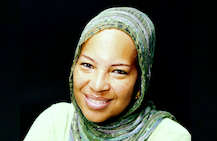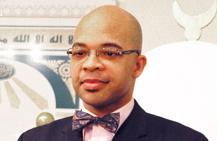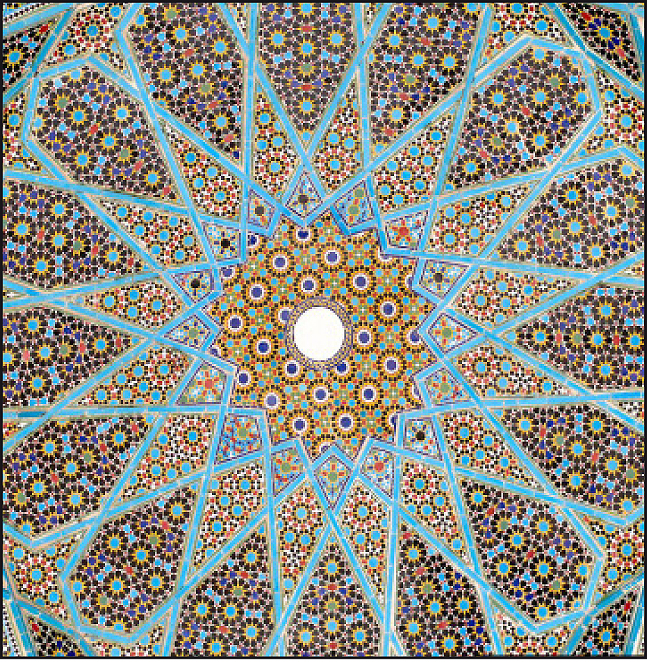CHICAGO—The Holy Month of Ramadan was transformed beginning in the year 2020 when the Covid-19 pandemic forced many Muslims into their homes. Many could not look forward to breaking their fasts with their families, going to a masjid, or mosque, for community prayer or making the mandatory Muslim pilgrimage of Hajj to Islamic holy places in Mecca and Madinah.
Despite these changes, the annual month of fasting and prayer for Muslims around the world remained a time for learning, growth and discovery. So shall it be this year.
Dr. Aminah Al-Deen, professor emerita in Islamic Studies at DePaul University’s Hajj Experience, said, “I think people’s spirits should be heightened because of the fact that we’re still here. Many of us are still here so we thank Allah (God) for that.”
She said with this year’s Ramadan, the focus should be on self-improvement compared to last year. Though the main source of communication today is virtual, it should not conflict with time communicating with Allah, she added.
“People should use the prayers and boundaries, don’t schedule Zoom meetings during prayer times and definitely don’t schedule Zoom meetings during the time of when you’re breaking your fast or iftar. … I think what happened was because it was virtual, people think ‘oh, I can do it anytime’ and you look up and that’s all you’re doing; there’s no family time, Zoom is interfering with meals. You have to discipline the virtual time just like you discipline your workday,” said Dr. Al-Deen.
By remaining disciplined, she continued, Muslims can focus on the elements of Ramadan—fasting, charity, reading the Holy Qur’an and striving to get closer to Allah.

Min. Abdul Akbar Muhammad 
Nisa Islam Muhammad 
Imam Sultan Rahman
“I pray that we all have a successful Ramadan, and that we set goals and accomplish them, and really learn how to be grateful and get some discipline about ourselves,” she said.
Author and Imam Amin Nathari told The Final Call, “As we anticipate the arrival of the blessed month of Ramadan, which is truly one of the great favors of Allah, we find ourselves faced with the same reality of the previous Ramadan, with regards to the global pandemic. Last year caught us off guard as it was the first time we’d been faced with observing Ramadan in such a time of rest. And by the Grace of Allah, we made it through.”
“This Ramadan brings with it yet another opportunity to continue strengthening our personal connection with the Lord of All the Worlds, even if it’s without the social gathering and interaction we’re accustomed to,” he continued. “May Allah accept our fasting, good deeds and all worship and acts of charity this Ramadan and protect and preserve us all.”
Min. Abdul Akbar Muhammad, the international representative of the Nation of Islam, said every Ramadan Muslims are blessed with is an opportunity to improve. “I think in every Ramadan is an opportunity to go into something you would like to do. Many use Ramadan as a weight loss [tool]. Ramadan is a discipline of the fast but of course Ramadan is more than that, but there should be a goal that you set,” he said. “Quite naturally it’s going to be a challenge for a lot of people. I think that this Ramadan is going to be different.”
Despite it being different, Min. Akbar Muhammad said Muslims should use their tools to make the most of Ramadan, such as the Ramadan Prayer Line, which is offered annually by the Nation of Islam. The Ramadan Prayer Line is a teleconference that unites Muslims from around the globe with a daily message every morning. It includes Islamic speakers from different schools of thought and often different parts of the world.
Nisa Islam Muhammad, Final Call writer and co-creator of the Ramadan Prayer Line, said listeners can expect to hear from their favorite yearly speakers as well as new voices at 5 a.m. (EST). A special treat will be the Honorable Minister Louis Farrakhan of the Nation of Islam opening up the prayer line the day Ramadan begins on April 13.
This is the month that Believers should start their Ramadan journey one way and end “being a better Believer,” she said.
Min. Akbar Muhammad added, “During this isolation, people have made their prayers more regularly. They’ve come closer together, it really has made, in my opinion, us closer.”
Imam Sultan Rahman Muhammad, the student national imam of the Nation of Islam, agreed.
“I think this year Inshallah (God Willing), it will be similar but with the hindsight of knowing of what to expect. Most significantly during the month of Ramadan, it’s been a time where we come together and you see communities build with one another in terms of relationships. I believe this year, we are prepared in a way we were not as to what Ramadan is really about. A trial is a blessing,” said the national imam based at Mosque Maryam in Chicago.
Imam Sultan Rahman noted that each Ramadan is a test of devotion and an opportunity to build a better relationship with Allah.
“We’re not left alone to compare ourselves to one another’s fast,” he explained. “Allah has seen fit to place us in our homes and to make our houses of worship, and when we are left alone, we are left with an assessment of a deeper, self-reflection. … All of the comforts and distractions, if we are so blessed to have the comforts that many do not at this time, then this should be part of our reflection. How many of us have housing? So, self-reflection is key during this Holy Month, making sure we are showing Allah our gratitude for what we are blessed with.
“So, if one is not able to fast due to health or circumstances, we find that in the place of fasting, there is the act of charity, the act of giving. It’s an equalizer for the thoughts we may have of self, we take for granted and the thoughts we may have of others. … We should find in this hour an urgency to fortify, to build, to strengthen our relationships as Believers. We are in the practice right now of separation. All things that were once for some of us distractions of the world are not cut off.
“Whatever types of personal deficiencies that we personally want to overcome, this is the time to apply ourselves instead of binging on programs that are really designed to keep from the remembrance of Allah, but designed to program our thinking into the mind of the world. We really have a distinguished opportunity to build a relationship with Allah.”













